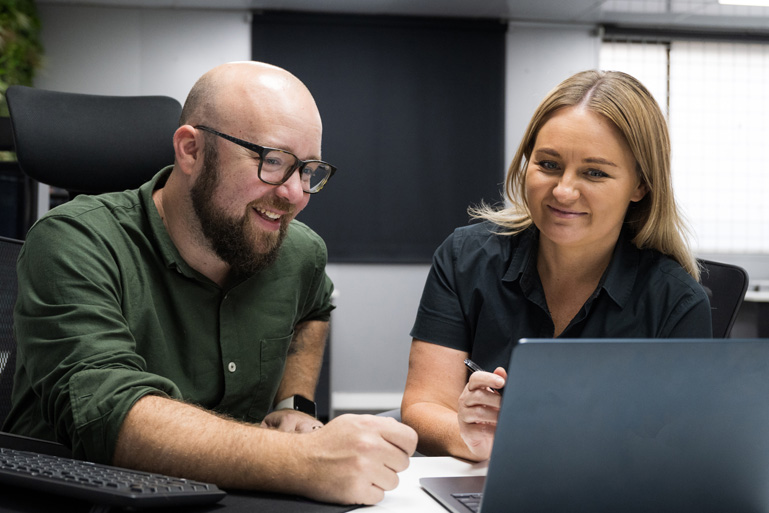A common hiring mistake? Ruling out nervous candidates. But confidence doesn’t always equal competence, says recruiter Germaine Samuels.
Voice of Verve insight by Germaine Samuels | Verve Senior Recruitment Consultant
You find a candidate who looks great on paper, but when they arrive for an interview, they seem quite nervous. But don’t write them off, says our tech specialist Germaine Samuels. Lack of confidence doesn’t equal job incompetence.
Having spent the past four years observing the hiring process from both sides, I’ve noticed several myths that prevent companies from hiring the right people.
One of the most common misconceptions is that interview anxiety—such as visible nerves, fidgeting, or stumbling over answers—signals incompetence, while interview confidence—being calm and communicating strongly—signals competence.
But science actually says otherwise.
Anxiety doesn’t equal incompetence
Studies consistently show that interview anxiety has little to no correlation with actual job performance. Surprisingly, the connection between confidence and competence is also quite weak (Source).
In fact, as an interviewer, you only have a 65% chance of correctly assessing someone’s competence when you first meet them (
To complicate things further, the ‘Better-than-average bias’ leads many to overestimate their own abilities. While some individuals may truly be above average, most are simply overconfident (Source).
Interestingly, a moderate amount of anxiety can actually improve performance in the job a candidate is interviewing for (Source).
Confidence can be a red flag
When we mistakenly link interview performance to actual job competence, we often hire people who seem great in the interview but aren’t the best fit for the role.
This mismatch leads to frustration and misalignment within teams, which can have a big impact on productivity and morale.
For example, traits like overconfidence or seeming self-absorption, often mistaken for charisma or strong leadership, can actually be red flags. These qualities might hide deeper issues, like a lack of self-awareness, poor teamwork skills or an inability to adapt.
Instead of being seen as strengths, these traits should be looked at more closely, as they could lead to challenges down the road.
When interview performance is overvalued in this way, it puts our teams and organisations at risk, even when there’s plenty of talent available.
So, how do we improve the hiring process so this bias doesn’t occur?
1. Make interviews a conversation, not an interrogation
Rapid-fire questions and blank stares only serve to intimidate candidates. Instead, create an environment where both parties feel comfortable and engaged.
2. Reassure nervous candidates
If a candidate appears anxious, take a moment to put them at ease. After the interview, ask HR or the recruiter why they seemed nervous.
Common responses I get are:
- “It’s been a long time since I last interviewed.”
- “I really want this job.”
- “I really need this job.”
3. Conduct thorough reference checks to tip the scales
Most references are positive, but great candidates have references that go beyond the generic praise. Look for references that genuinely gush about the candidate’s contribution and abilities.
By shifting the focus away from superficial traits like confidence and composure, you can make better hiring decisions, leading to stronger teams, better leadership and a more engaged workforce.
Let’s have a conversation
Are you ready to move beyond the myths and focus on what matters? Contact Germaine today to discuss how we can help you hire the right talent. Do interviews make you nervous? We can work on that, too!





